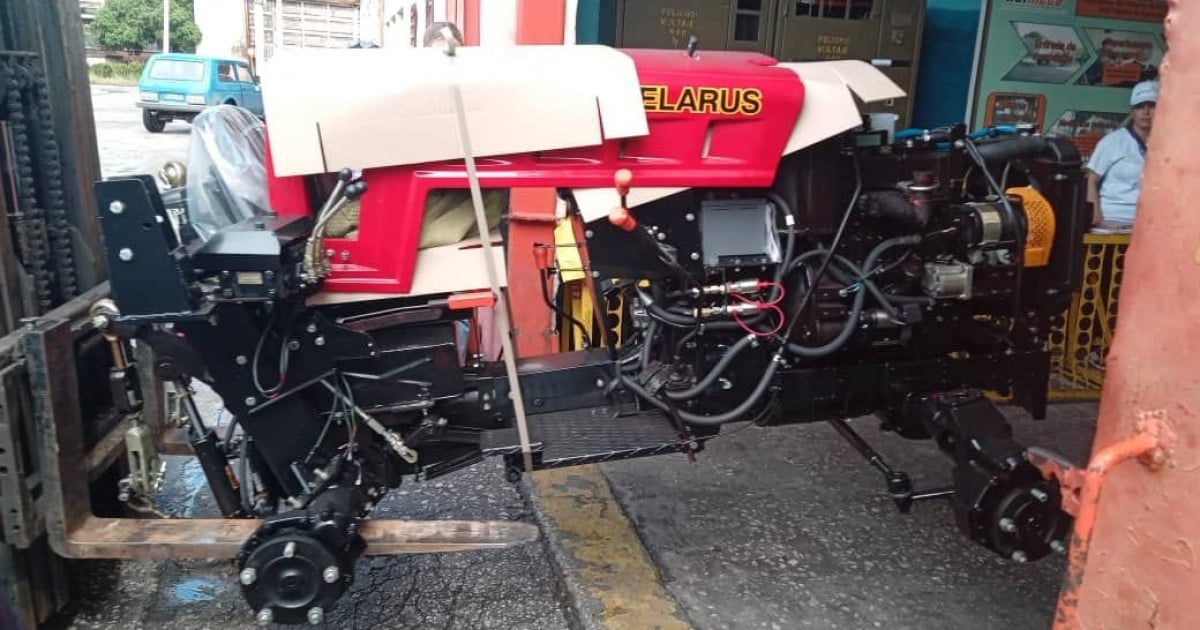
Related videos:
The Cuban government is trying to obtain Minsk engines from Belarus, a key military and economic ally of the regime.
According to the state news agency of Belarus (BelTA), the general director of the Minsk Motor Plant (registered trademark MMZ), Aleksandr Botvinnik, met with the Cuban ambassador to Belarus, Santiago Pérez Benítez.
The businessman informed the Cuban diplomat about the production line of the plant: diesel engines of various power levels and special machinery.
For his part, Pérez Benítez paid special attention to the factory's capabilities and to other products that are part of the holding, such as pumping stations and irrigation machines for agriculture.
The Cuban official did not clarify how Havana would pay for those engines; he only stated that the cooperation between the two countries has "strategic importance."
"The Belarusian technologies and best practices in the manufacturing industry can significantly enhance the efficiency of the Cuban agricultural sector," noted the Cuban ambassador.
In Cuba, Minsk motorcycles are very popular, having started production after World War II.
In 2018, the MMZ engine plant agreed to expand its collaboration with the Island by sending a batch of 84 D-242-71M engines. A delegation from the Cuban Ministry of Agriculture visited the factory to acquire engines and parts for the repair of tractors, trucks, and agricultural machinery.
The then director of the industry noted that they were also willing to send specialists to Cuba to teach the installation of the engines and the adjustment of all technical processes.
In July, it was announced that the Cuban government would pay for a batch of tractors from the Belarusian capital with rum and coffee.
Both countries had approved a mutual trade plan for the next two years, with an expected exchange of 6.8 million dollars in exports from each side; however, trade cannot proceed in cash due to the lack of funds in the coffers of the Caribbean island.
Traditionally, Belarus has exchanged tractors for Cuban medicines, but the supply of tractors exceeds the demand for medicines in that country, which offers "flexible" payment methods to its cash-strapped partners. In this case, they proposed to expand the list of products for barter transactions to include rum, cocoa, coffee, and fruit puree, among others.
Last year, Havana expressed interest in purchasing Belarusian weapons, particularly missiles with a range of up to 300 kilometers.
According to the EFE agency, during a meeting in Havana between representatives of the Armed Forces of both nations, an important military cooperation plan was agreed upon.
Frequently asked questions about cooperation between Cuba and Belarus in the import of Minsk engines
Why is the Cuban government seeking Minsk engines in Belarus?
The Cuban government is seeking Minsk engines in Belarus due to the "strategic importance" that Belarusian technologies have for enhancing the efficiency of the Cuban agricultural sector. These engines are part of an effort to improve agricultural machinery in Cuba, which is facing serious economic and technological challenges.
How does Cuba plan to pay for the Minsk engines?
The Cuban official did not clarify how Havana would pay for those engines, but it is known that Cuba is facing significant economic difficulties and has previously utilized barter mechanisms, such as exchanging rum and coffee for Belarusian tractors. This type of exchange could be an option for acquiring the Minsk engines.
What kind of engines does the Minsk plant produce and how will they be used in Cuba?
The Minsk Engine Plant (MMZ) produces diesel engines of various power outputs and specialized machinery. In Cuba, these engines will primarily be used in agriculture to enhance the efficiency and production capacity of tractors and other agricultural equipment.
What is the current economic relationship between Cuba and Belarus?
Cuba and Belarus maintain an economic relationship based on a mutual trade plan that includes an exchange of $6.8 million in exports from each country. Trade between the two nations is conducted without cash due to the shortage of funds in the Cuban treasury, utilizing flexible payment methods and bartering products such as rum and coffee for agricultural machinery.
Filed under: